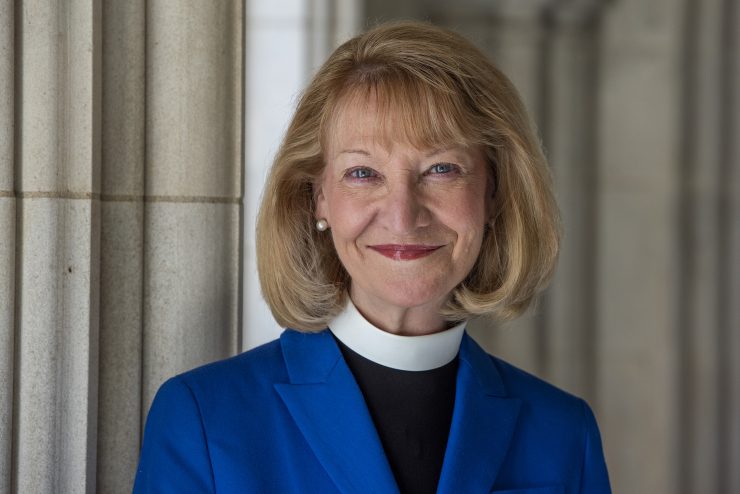A Better Way … to Find Common Ground
To state the obvious, finding common ground with those with whom we fundamentally disagree is one of the greatest challenges of our time. It seems we too quickly categorize and “write off” people who hold different views.

“An enemy,” Quaker Gene Hoffman wrote, “is one whose story we have not heard.”
In order to get ourselves beyond scant information and hasty characterizations of people, we need to go deeper. But how? Thankfully, our baptismal covenant offers a way forward. Consider the questions we ask when we welcome new members to our community:
- Will you seek and serve Christ in all persons, loving your neighbor as yourself?
- Will you strive for justice and peace among all people, and respect the dignity of every human being?
We answer, “With God’s help, we will.” Note that these are active words: seek, serve, strive, respect. In short, we all have a role to play in finding common ground; this is not a passive undertaking.
Rabbi Lord Jonathan Sacks, the late Chief Rabbi of Great Britain and one of the great moral thinkers of our time, wrote that looking for the good, and acting for the good, are hardwired into our DNA.
“Bad behavior can easily become contagious but so can good behavior, and it usually wins out in the long run,” he wrote in his book, “Morality: Restoring the Common Good in Divided Times.”
“To begin to make a difference, all we need to do is to change ourselves. To act morally. To be concerned with the welfare of others. To be someone people trust. To give. To volunteer. To listen. To smile. To be sensitive, generous, caring.”
In other words, the challenge – and opportunity – of finding common ground with our neighbor starts with us. This is not a time to wait for someone else to act. This one’s on us.
Here’s the good news: we’ve already seen that it can be done. Our own Canon Historian, Jon Meacham, points to our own history to show that we have been, and can be, better than we thought possible.
“To know what has come before is to be armed against despair,” he writes in “The Soul of America: The Battle for Our Better Angels.”
“If the men and women of the past, with all their flaws and limitations and ambitions and appetites, could press on through ignorance and superstition, racism and sexism, selfishness and greed, to create a freer, stronger nation, then perhaps we, too, can right wrongs and take another step toward that most enchanting and elusive of destinations: a more perfect Union.”
In these challenging times, each of us is called to seek the common good and work actively in pursuit of it so that all God’s children may experience something of the Kingdom of God in our time.
With God’s help, we will.
A prayer attributed to St. Francis
Lord, make us instruments of your peace.
Where there is hatred, let us sow love;
where there is injury, pardon;
where there is discord, union;
where there is doubt, faith;
where there is despair, hope;
where there is darkness, light; where there is sadness, joy.
Grant that we may not so much seek to be consoled as to console; to be understood as to understand; to be loved as to love.
For it is in giving that we receive; it is in pardoning that we are pardoned; and it is in dying that we are born to eternal life. Amen.